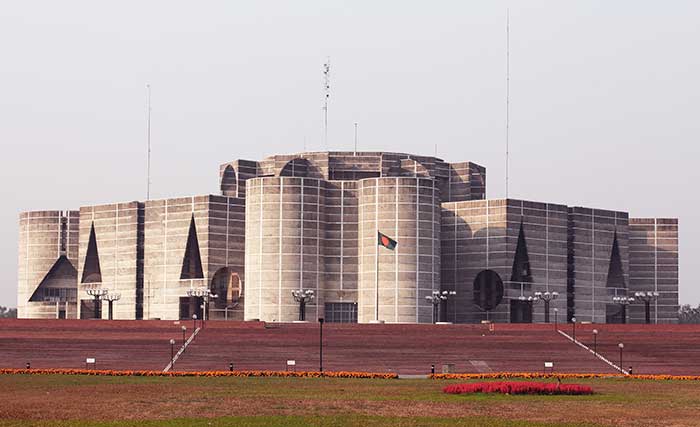webbangladeshparliament_shutterstock_372694786.jpg

Parliament building in Bangladesh
The parliamentary standing committee’s recommendation would add yet another stringent control in to an already controversial bill regulating foreign donations to NGOs operating in Bangladesh. The bill has been criticised by the United Nations.
Around the world, humanitarian and development organisations are increasingly facing serious restrictions on their work, with several countries including China, Russia and South Sudan passing laws to control or limit their activities.
Committee chair Suranjit Sengupta said that in Bangladesh, NGOs should have to “honour” the country’s constitutional bodies, including parliament, the attorney general and the judiciary, according to Bangladeshi paper The Daily Star.
He said NGOs should be able to criticise, but not be abusive.
If an NGO is found to have made an insulting or derogatory remark, the committee suggested government should be able to cease its activities.
The move follows a dispute between Transparency International’s Bangladeshi branch and the country’s MPs, who objected to a report published by the anti-corruption NGO in October last year criticising Bangladesh’s parliament.
In November, the UN’s special rapporteur on the rights to freedom of peaceful assembly and of association, Maini Kiai, urged the parliament not to adopt the Foreign Donations (Voluntary Activities) Regulation Act, which was due to be debated in the next parliamentary session.
He said the law would make it compulsory for NGOs seeking to receive or use foreign funds to register with the government’s NGO Affairs Bureau.
NGOs would also have to seek the bureau’s approval for each project tied to these resources, project progress would be reviewed by the bureau every month, and the bureau would have to approve every foreign specialist recruited.
Failure to comply would lead to the cancellation or suspension of an NGO’s registration, the interruption of the project or a fine of up to three times the amount of foreign funds received.
“Such governmental intrusion is totally unacceptable,” said Kiai.
“Registered and unregistered NGOs should be able to operate and function freely without prior authorisation or undue impediments.”













